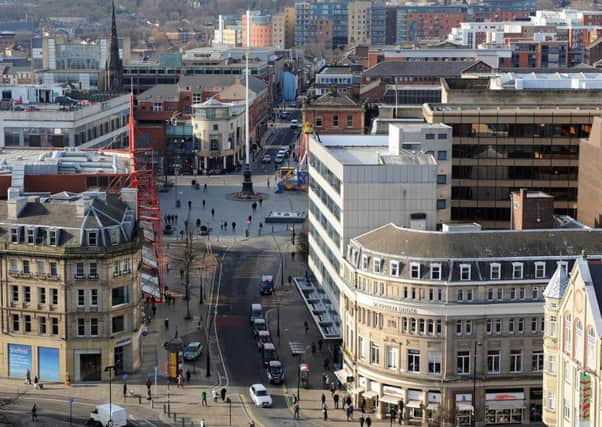Louise Haigh and Danny Dorling: Theresa May's Industrial Strategy must work Sheffield, the city of low pay


The Resolution Foundation released a report last week which found that incomes in Sheffield have not recovered, and nor grown, nine years on from the financial crash. Sheffield is now the lowest paid city in the UK.
But there is stark inequality within and not just between our great cities. Eight years ago, A Tale of Two Cities was released which shone a light on that inequality. You can track the route of the 83 bus from one of the seven hills Sheffield sits on through the city centre to one of the poorest wards. In just 40 minutes life expectancy falls by 10 years.
Advertisement
Hide AdAdvertisement
Hide AdBut similar bus routes which match inequality can be found all over the country. These journeys highlight how Britain has divided over the last three decades. If you ride these routes you see the signs of an economic model which has unquestionably failed us all. Many people at the wealthier end of the routes are now no longer doing well. In particular, affluent elderly residents also suffer when health and social care fails.
There is no doubt that interventions from a Labour government stemmed the rising inequality tide for a time, and funded health and care far more than before. Investment in public services like Sure Start gave more young kids a better start in life, in education more students were helped to get on. All those interventions significantly contributed to the economic and sustainability of Sheffield, but they have largely ended now.
And at the heart of the city-region’s problems is work. Sheffield now has record levels of employment but far too many only just scrape by.
The granddaughter of a steelworker may now work in a shopping mall where half the employees will only earn the bare minimum and her job is at constant threat of being lost when prices rises as the pound falls in value. Or she may work in a call centre and know that at any time her work can be offshored.
Advertisement
Hide AdAdvertisement
Hide AdMore than half of our under-25s are on low-pay and last year an annual survey of wellbeing for young people published its worst ever results in 2017. By 2016 more than quarter of 16 to 25-year-olds in the UK no longer felt in control of their lives. A third said they expected to have a worse standard of living than their parents. More than a third did do not feel in control of their job prospects. And approaching half said that traditional goals like owning a house or getting a steady job are unrealistic.
Sheffield is a beautiful city set in a beautiful region. It now suffers not from deindustrialisation, but from being located in a country which has tolerated the highest levels of economic inequality in Europe for too long. It suffers from the indifference of those who live far away and lack the imagination to see what alternatives are possible. The mission then is pretty clear and frankly half measures and rehashed announcements won’t cut it, especially in cities like Sheffield. In this open, tolerant, brilliant city, the first city of sanctuary and first city of football, people desperately need an economy which works in their interests.
In Sheffield, we know the power of investment. On the site of the totemic Battle of Orgreave, the Advanced Manufacturing and Research Centre, backed by government funds, has taken off and is now training young apprentices in high tech manufacturing and next generation machinery. Showing what you can do when you invest.
But giving hope requires integrating our education system with an interventionist industrial strategy, teaching the creative and technical skills we need to grow the industries of the 21st century. To do this effectively we need a genuinely co-operative education system that shares the best teachers as well as pupils between schools to develop specialisms. And we must invest in our older workers, equipping them to retrain as their jobs inevitably are replaced. This will happen again and again in the decades to come.
Advertisement
Hide AdAdvertisement
Hide AdA real living wage for all is an obvious necessity, so people earn enough to live on but also to live a life with.
And for parents of young children, we need a properly funded high-quality childcare system which provides free childcare and helps their young children prepare for school.
Finally, if devolution is to mean anything, it not only has to bring decisions closer to home, but it must bring investment in infrastructure, in local start-ups, in entrepreneurialism and alongside it we must open up private capital to democratise access to finance.
Sheffield is a city with too many on too little, but it doesn’t have to be that way. The test of the Industrial Strategy will be whether it transforms the lives of people in places like Sheffield. We cannot afford any more false starts.
Louise Haigh is the Labour MP for Sheffield Heeley and Danny Dorling is Professor of Geography at the University of Oxford.